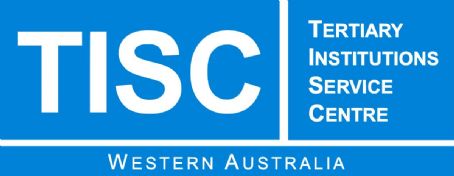Judul : Tertiary Admission at 16, Cut-Off at 150: Nigeria's Education Gamble?
link : Tertiary Admission at 16, Cut-Off at 150: Nigeria's Education Gamble?
Tertiary Admission at 16, Cut-Off at 150: Nigeria's Education Gamble?

The recent announcement regarding tertiary admission standards has sparked considerable debate across Nigeria. The Ministry of Education has declared 16 as the official minimum age for university entrance, while the Joint Admissions and Matriculation Board (JAMB) has set a general cut-off mark of 150 out of 400 for tertiary admissions. These changes have elicited mixed reactions, with some Nigerians expressing concerns about the potential impact on educational quality and student preparedness.
Concerns Regarding Age and Maturity
One of the primary concerns revolves around the perceived lack of maturity among 16-year-olds entering university. Critics argue that this age group may not be emotionally, mentally, or physically ready for the challenges of higher education. Some argue that students at this age are still in a vulnerable stage and require parental guidance, which may be diminished once they enter a university environment. There are fears that this could lead to an increase in vices on campuses and potentially contribute to social issues like teenage pregnancy.
The Cut-Off Mark Debate: Standards vs. Accessibility
The decision to lower the JAMB cut-off mark to 150 has also drawn criticism. Many believe that this move compromises academic standards and undermines the value of a university education. Some argue that even the previous cut-off mark of 180 was inadequate, and that further lowering the bar will only exacerbate existing problems with literacy and academic preparedness among students. The concern is that admitting students with such low scores could lead to a decline in the overall quality of graduates and the workforce.
However, some argue that the cut-off mark should not be the sole determinant of a student's potential. They point to examples of exceptionally bright students who have excelled in university at a young age and gone on to achieve great things. Some suggest that JAMB should release the scores of the top candidates to demonstrate whether the highest performers are all above the age of 16.
The Importance of Guidance and Support
Even those who are not entirely opposed to admitting 16-year-olds acknowledge the need for robust support systems within universities. They emphasize the importance of quality counseling services to guide students morally and academically. However, concerns are raised that many institutions in Nigeria currently lack the resources and infrastructure to provide adequate support to students, particularly in areas such as character development and career guidance.
Alternative Perspectives and Proposed Solutions
While concerns about the potential negative consequences of these policies are prevalent, some offer alternative perspectives. Some believe that age should not be a barrier to education and that exceptional candidates should be exempt from the age limit. They argue that a minimum age of 15, clearly and transparently stated by JAMB, might be a more appropriate compromise.
Others suggest that a more balanced approach is needed, one that considers both merit and readiness. They emphasize the importance of nuanced discussions among stakeholders to ensure that educational policies align with national goals and global best practices.
The Need for Qualified Educators and Modernized Curriculum
Beyond the debates surrounding age and cut-off marks, there is a broader consensus on the need to improve the quality of education in Nigeria. This includes investing in qualified and up-to-date educators, as well as modernizing the curriculum to reflect the changing demands of the global job market. The rise of artificial intelligence (AI) and other emerging technologies necessitates a focus on relevant fields and the development of skills that will be valuable in the future.
Calls for Transparency and Further Examination
Overall, the announcement regarding tertiary admission standards has triggered a wave of discussions and concerns about the future of education in Nigeria. Many are calling for greater transparency and a more thorough examination of the potential consequences of these policies. The prevailing sentiment is that a balanced and well-considered approach is needed to ensure that Nigerian students are adequately prepared for the challenges of higher education and the demands of the modern workforce.
Thus the article Tertiary Admission at 16, Cut-Off at 150: Nigeria's Education Gamble?
You are now reading the article Tertiary Admission at 16, Cut-Off at 150: Nigeria's Education Gamble? with the link addresshttps://www.unionhotel.us/2025/07/tertiary-admission-at-16-cut-off-at-150.html
0 Response to "Tertiary Admission at 16, Cut-Off at 150: Nigeria's Education Gamble?"
Post a Comment